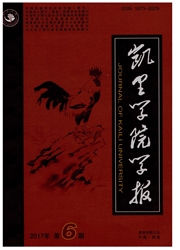

 中文摘要:
中文摘要:
自2000年中国实施"西部大开发"战略以来,如何修复西部脆弱的生态环境、如何发展经济、消除贫困成为国内外学者共同关心的话题。伴随"西部大开发"而来的"退牧还草"政策与"生态移民"工程,亦引起部分西方人类学者的持久关注。从目前检索的英文文献来看,针对三江源生态移民的研究集中在三个方面:一是生态移民与合作管理的讨论;二是从牧民视角重新审视生态移民政策;三是关注生态移民的社会适应与文化变迁。了解西方学者如何看待三江源生态移民问题,不仅能为中国的生态保护与经济发展提供新的观察视野,还能够从其提供的个案实践中,获得另一种可能的解决途径。
 英文摘要:
英文摘要:
In 2000,China has begun to practice " Western Development" Strategy. Since that time,how to restore the vulnerable western ecological environment,how to improve economic development and how to eliminate poverty have become a worldwide topic. Along with the strategy,the Chinese government announced the " pasture to green" policy and then launched " ecological migration" project. It has attracted the western anthropologists' research interest. By reviewing the current English literature,author found these studies on ecological resettlement in Sanjiangyuan are mainly focused on three aspects: First,to discuss the co-management and ecological resettlement; the second is to reflect the ecological resettlement from the Tibetan pastoralists' perspective; the third is to focus on the pastoralists' social adaptation and cultural change after ecological resettlement. To learn how western scholars viewed ecological resettlement in Sanjiangyuan issues,can not only provide us an alternative vision for ecological protection and economic development,but also can obtain another possible solution from previous practice.
 同期刊论文项目
同期刊论文项目
 同项目期刊论文
同项目期刊论文
 期刊信息
期刊信息
